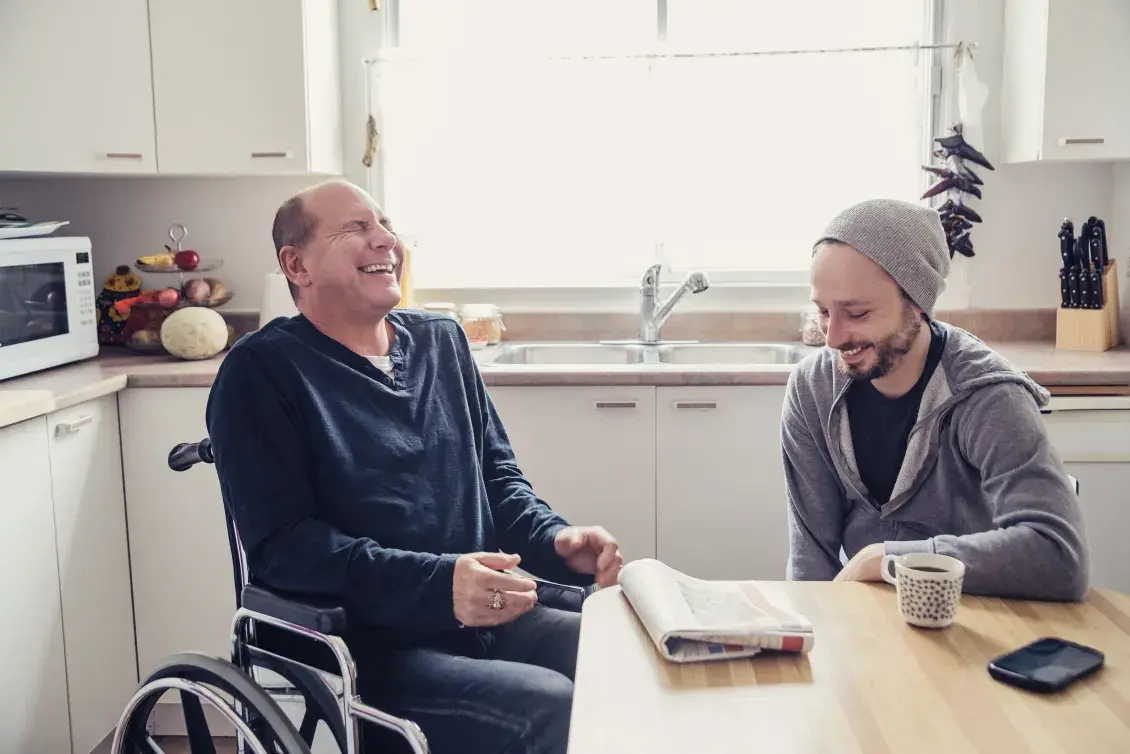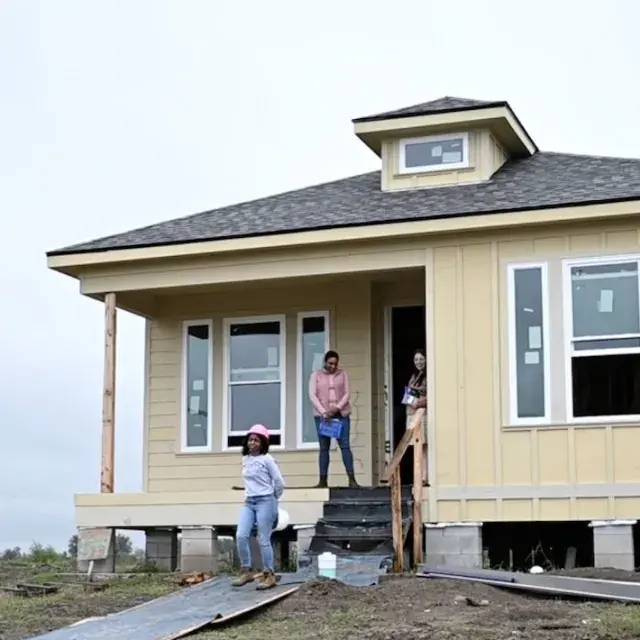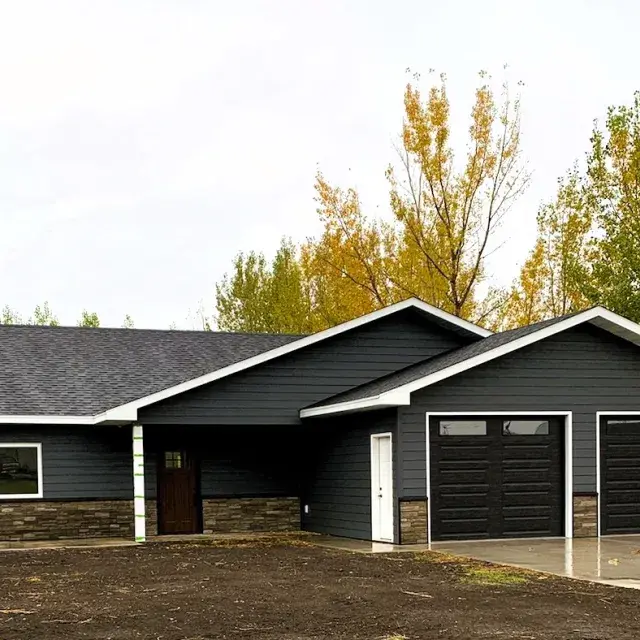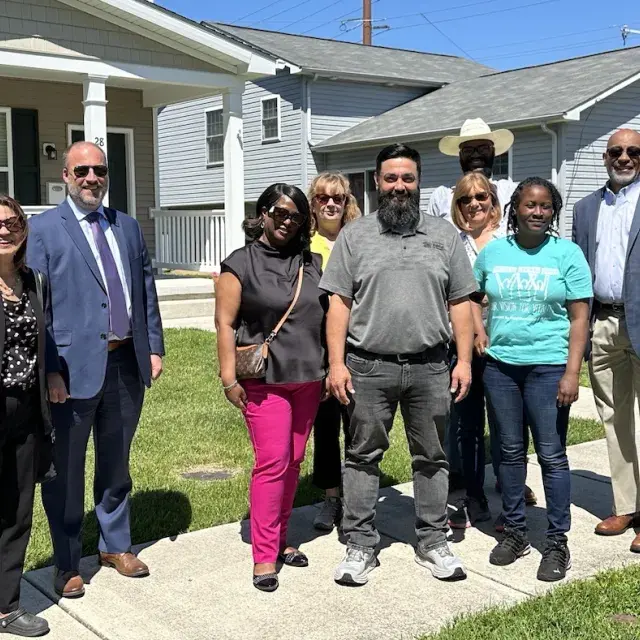Shawnee, Oklahoma, a suburb of Oklahoma City, has seen its population and cost of living increase in recent years, with the median monthly rent rising to $912. For people with disabilities, with a median income of $23,000 per year, that’s roughly $450 more every month than they can afford.
Shawnee provides just one example of the housing affordability challenges people with disabilities face across the country.
South Central Industries, Inc., a nonprofit organization based in Shawnee, is dedicated to helping solve this issue by building homes and providing services to individuals with intellectual and developmental disabilities (IDD). Established in 1981, South Central Industries serves over 50 individuals, offering vocational training, employment opportunities, and residential services.
Creating new affordable housing is already a challenge in many states, but creating accessible housing is even more difficult. According to a HUD survey, 4 in 10 households that have a member with a disability do not have the accessibility features needed for safe living. Accessibility features include wheelchair ramps, stairlifts, and railings in the bathroom and other rooms to make it easier to enter and exit. On top of that, upgrading your own home to include those features is quite expensive, costing, on average, about $200-$300 per square foot.
Providing Homes and Expanding Through Section 4
South Central Industries is using a Section 4 grant awarded by Enterprise to increase capacity to carry out its mission to build safe, affordable housing for adults with developmental and intellectual disabilities. The grant increased the organization’s ability to build Low-Income Housing Tax Credit (Housing Credit) homes and accessible housing.
South Central Industries has developed the Southern Pointe Community Affordable Housing project, a property with 20 units of accessible, affordable housing for adults with intellectual and developmental disabilities. Not only will this initiative increase the affordable housing supply in the community, but it will also provide a safe home for residents to learn daily living skills, engage with each other, and enjoy benefits normally hard to find in housing communities not catered to people with disabilities.
Enterprise, in its mission to expand affordable housing, awards community organizations grants through the Section 4 Capacity Building for Community Development and Affordable Housing Program. Each year, urban, rural, and tribal organizations are allocated money to increase their capacity to support community development activities and create more affordable housing. These grants assisted SCI in completing four key activities, including submitting their Housing Credit application, raising additional funds to fund infrastructure surrounding the new housing development, coordinating with families whose loved ones are coming off of the Oklahoma Developmental Disabilities Services waitlist, and launching a website and waiting list associated with the Housing Credit project.
Serving Oklahoma More Broadly
The reach and impact of the Section 4 grant goes beyond the grant activities because SCI’s long-term plans include becoming an independent Housing Credit developer for subsequent affordable housing projects. The experience gained through this specific project will allow SCI to learn how to develop housing through the Housing Credit program and ultimately develop other properties through the tax credit for adults with disabilities throughout the state of Oklahoma.
The Oklahoma City Housing Authority (OCHA), with 10,000 people on its housing voucher waitlist, is just one of many examples of public housing authorities (PHAs) struggling to keep up with the demands of residents in the community. These vouchers are critical for helping low-income families, the elderly, and individuals with disabilities afford housing. Only 1 in 4 households receive the rental assistance voucher they are eligible for, putting a strain on housing authorities to meet the demand, and waitlist times are often very long. Sometimes waitlists are so long that new applications are no longer accepted, as is the case for the Oklahoma Housing Finance Agency’s program. Many families in Oklahoma have been waiting for assistance for over two years, with no immediate resolution in sight, as local agencies struggle to keep up with demand.
Over 1,000 Oklahomans with disabilities are currently on waiting lists for safe and affordable housing. The challenge is amplified by the fact that constructing housing to meet their specific needs costs, on average, 18% more than non-ADA housing. Beyond high construction costs, financing must be designed to support low resident contributions, as most individuals with disabilities live below the poverty line. Additionally, each housing project must offer accessible support services, which many developers lack the resources or capacity to provide. As a result, many developers either cannot afford or choose not to pursue projects aimed at supporting adults with disabilities.
There are many factors that go into qualifying for Housing Credits to build affordable housing, and newer developers often shy away from applying due to the challenges and complexity. Gaining more experience will make it much easier to develop more projects in the future, adding potential benefits for the community. With continued support and investment, initiatives like those advanced by South Central Industries have the potential to transform communities and ensure that all individuals — regardless of ability — have access to a safe, affordable place to call home.



